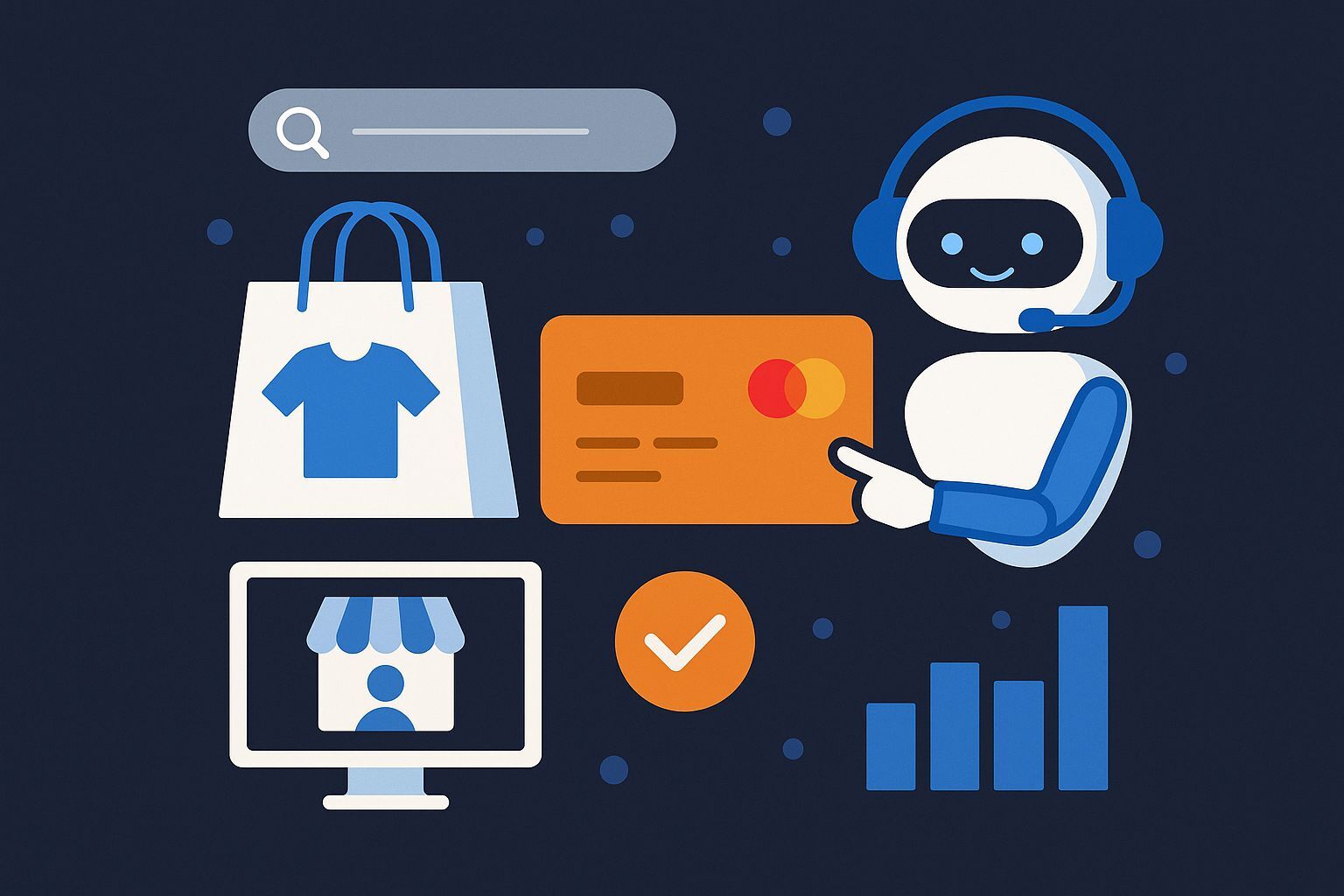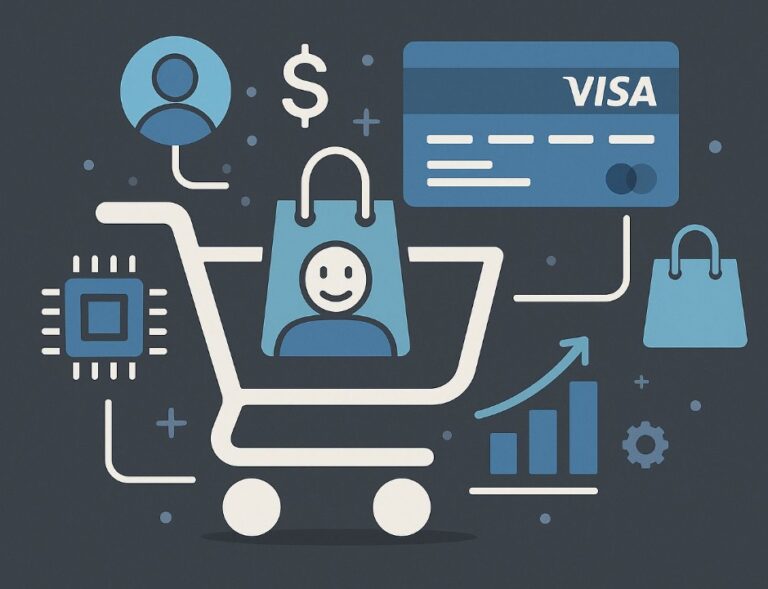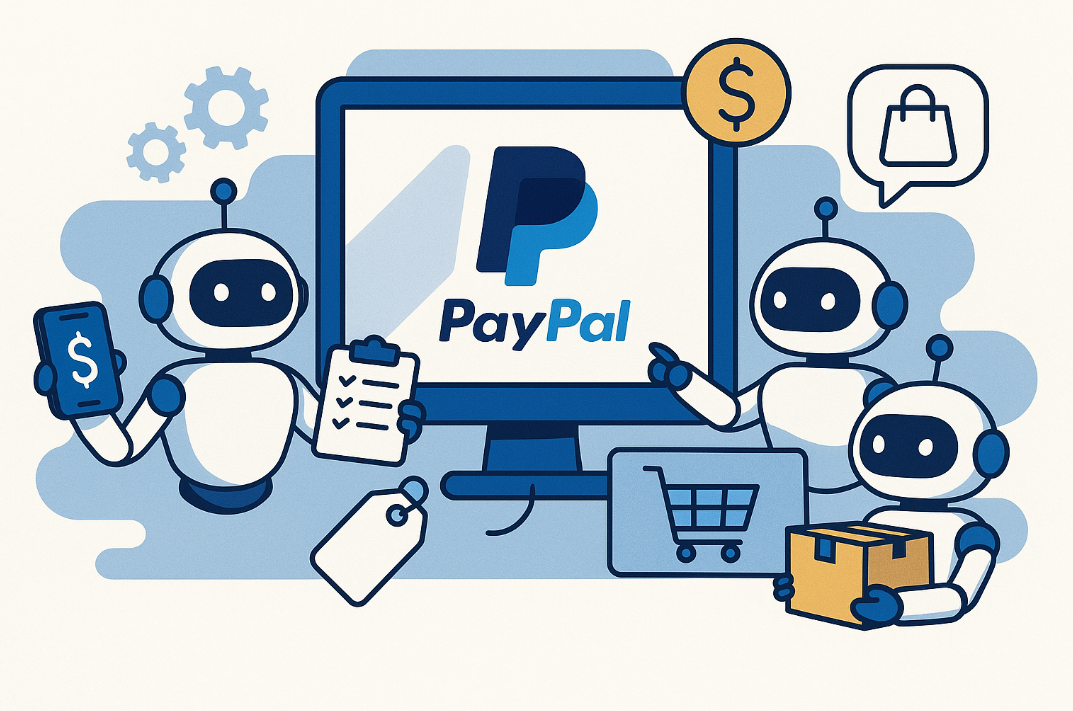The new Mastercard agentic commerce solution, Agent Pay, is designed to make agentic AI commerce transactions seamless, secure, and widely accessible. For brands, developers, and shoppers alike, this could mark the start of a much more intelligent and frictionless shopping experience.
What Is Mastercard Agent Pay?
Mastercard agentic commerce product, Agent Pay, is a payment solution designed to allow autonomous AI agents to securely make payments on behalf of consumers or businesses, using Mastercard’s tokenized payment technology.
At its core, Agent Pay enables AI-powered agents, such as chatbots, voice assistants, or business procurement bots, to complete a purchase without the user manually entering payment details at checkout.
Instead, the AI agent follows the user’s instructions, initiates the payment request, and Mastercard processes it securely using a tokenized payment credential. These credentials are temporary, secure, and specific to the authorized agent, meaning the shopper’s real card information is never exposed during the transaction.
How Mastercard Agentic Commerce Works?
Mastercard Agent Pay builds on the company’s existing payment infrastructure but adds a layer for AI agents. Its key elements include:
- Tokenization capabilities: When an AI agent needs to pay, Mastercard issues a special token (an Agentic Token) tied to the user’s account.
- Agent registration: Each AI agent (chatbot or software assistant) must be pre-registered and verified as trusted by Mastercard. Once verified, the agent can request tokens and make payments on behalf of the user.
- User-defined controls: Consumers (or businesses) set clear rules for their agents, such as spending limits, merchant categories, or one-time approvals.
- Seamless AI integration: Agent Pay is built to plug into conversational AI interfaces and initiate the tokenized payment with a single confirmation.
- Security measures: Mastercard layers on its authentication tools. Agents can trigger on-device Mastercard payment passkeys (like Face ID) before paying, and the network will apply fraud detection monitoring on all agent transactions.
What Are the Use Cases for Mastercard’s Agent Pay?
Mastercard Agent Pay is designed for a wide range of users, and in each case, the goal is the same—let trusted AI agents handle payments automatically, safely, and according to the user’s rules. Here’s how it works in different scenarios:
Everyday Shopping Made Easier
For everyday consumers, Agent Pay enables shopping assistants to handle purchases from start to finish. For example:
- Instead of manually browsing sites like Amazon, a user tells an AI agent, just like they would a generative AI bot, “Find me hiking gear under $200.”
- The agent searches multiple retailers, compares the products, picks the best options, and presents them to the user. The whole process happens within the same browser window or a voice conversation, making the experience very fast and straightforward.
- The user picks out the product they want, and the agent checks out using a Mastercard token.
Another thing worth noting is that the more precise the “request” is, the better the results will be. If the user specifies the brand or the color, the agent will tailor the search to find those exact items. Over time, an intelligent agent will get more familiar with consumer needs, providing more relevant results. Also, if the user allows, trusted agents can apply promotions, loyalty rewards, or special offers before paying.
Automating Business Purchases
For ecommerce or other businesses, Mastercard Agent Pay supports routine purchasing through AI-driven automation. This makes procurement much easier and cost-effective.
For example, a company uses an AI shopping agent to automatically reorder supplies. The AI agents negotiate the order, arrange shipping, and pay with virtual corporate Mastercard’s agentic tokens, keeping everything compliant with company spending limits.
Mastercard works with partners like IBM (using IBM’s watsonx Orchestrate) to integrate these agentic payments into existing enterprise systems, ensuring they become an integral part of the normal procurement process.
Supporting Banks and Merchants Behind the Scenes
Although not end-user “customers,” issuers and acquirers are also key beneficiaries. Mastercard’s plan is to extend tokenized credentials across agentic platforms so banks and financial institutions retain visibility and control over card usage.
Merchants (e-commerce sites, apps, POS systems) will receive orders from authenticated agents just as they do today from browsers or wallets, but with added context (such as an extra flag that the buyer is an AI agent).
This transparency lets them trust and potentially tailor the shopping experience (for example, confirming that the buyer’s agent belongs to a card on file and can receive personalized offers).
Is Mastercard Collaborating with Other Companies in the Agentic Space?
Mastercard is collaborating closely with major AI platform providers. It specifically announced work with Microsoft (integrating Azure OpenAI Service and Microsoft Copilot Studio) to bring payments into widely used conversational interfaces.
Mastercard is also tying Agent Pay into merchant payment systems. It is working with acquirers and checkout platforms like Braintree (owned by PayPal) and Checkout.com to embed Agent Pay token support into their existing tokenization services.
This means any online seller already accepting Mastercard tokens via those services can accept Mastercard agentic tokens too, with no extra integration needed. For example, a retailer using Checkout.com’s token gateway will recognize a Mastercard Agentic Token and process it as a secure virtual card payment.
What Other Businesses Are Venturing into Agentic Technology?
Mastercard is hardly the only company in the agentic commerce space. As we speak, there are more than a handful of other agentic AI products on the market developed by both leading AI platforms as well as companies providing financial services.
Visa Intelligent Commerce
Visa’s platform enables AI agents to securely verify identities, issue tokenized payment credentials, and complete autonomous purchases, supporting both consumer and business transactions.
PayPal Agent Toolkit
PayPal’s toolkit lets developers embed PayPal-powered secure payments, invoicing, and order fulfillment into AI-driven workflows. It supports consumer and B2B payments and plugs into PayPal’s broader ecosystem.
Stripe Agent Toolkit
Stripe’s toolkit gives AI agents access to its payment APIs, subscription billing, and financial workflows, targeting SaaS platforms and startups building autonomous commerce solutions.
Kibo Agentic Commerce
Kibo, one of the leading agentic commerce platforms, offers digital commerce services for AI agents, including product discovery, dynamic pricing, and agent-led checkout, aimed at retailers and brands.
Amazon Buy for Me
Amazon’s Buy for Me allows Alexa and other agents to autonomously select and purchase products outside of Amazon’s marketplace, directly from the Amazon app.




